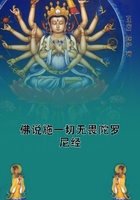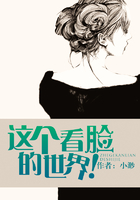They were the first generation of statesmen by profession that England produced. Before their time the division of labour had, in this respect, been very imperfect. Those who had directed public affairs had been, with few exceptions, warriors or priests; warriors whose rude courage was neither guided by science nor softened by humanity, priests whose learning and abilities were habitually devoted to the defence of tyranny and imposture. The Hotspurs, the Nevilles, the Cliffords, rough, illiterate, and unreflecting, brought to the council-board the fierce and imperious disposition which they had acquired amidst the tumult of predatory war, or in the gloomy repose of the garrisoned and moated castle. On the other side was the calm and subtle prelate, versed in all that was then considered as learning, trained in the Schools to manage words, and in the confessional to manage hearts, seldom superstitious, but skilful in practising on the superstition of others; false, as it was natural that a man should be whose profession imposed on all who were not saints the necessity of being hypocrites; selfish, as it was natural that a man should be who could form no domestic ties and cherish no hope of legitimate posterity, more attached to his order than to his country, and guiding the politics of England with a constant side-glance at Rome.
But the increase of wealth, the progress of knowledge, and the reformation of religion produced a great change. The nobles ceased to be military chieftains; the priests ceased to possess a monopoly of learning; and a new and remarkable species of politicians appeared.
These men came from neither of the classes which had, till then, almost exclusively furnished ministers of state. They were all laymen; yet they were all men of learning; and they were all men of peace. They were not members of the aristocracy. They inherited no titles, no large domains, no armies of retainers, no fortified castles. Yet they were not low men, such as those whom princes, jealous of the power of a nobility, have sometimes raised from forges and cobblers' stalls to the highest situations. They were all gentlemen by birth. They had all received a liberal education. It is a remarkable fact that they were all members of the same university. The two great national seats of learning had even then acquired the characters which they still retain. In intellectual activity, and in readiness to admit improvements, the superiority was then, as it has ever since been, on the side of the less ancient and splendid institution. Cambridge had the honour of educating those celebrated Protestant Bishops whom Oxford had the honour of burning; and at Cambridge were formed the minds of all those statesmen to whom chiefly is to be attributed the secure establishment of the reformed religion in the north of Europe.
The statesmen of whom we speak passed their youth surrounded by the incessant din of theological controversy. Opinions were still in a state of chaotic anarchy, intermingling, separating, advancing, receding. Sometimes the stubborn bigotry of the Conservatives seemed likely to prevail. Then the impetuous onset of the Reformers for a moment carried all before it. Then again the resisting mass made a desperate stand, arrested the movement, and forced it slowly back. The vacillation which at that time appeared in English legislation, and which it has been the fashion to attribute to the caprice and to the power of one or two individuals, was truly a national vacillation. It was not only in the mind of Henry that the new theology obtained the ascendant one day, and that the lessons of the nurse and of the priest regained their influence on the morrow. It was not only in the House of Tudor that the husband was exasperated by the opposition of the wife, that the son dissented from the opinions of the father, that the brother persecuted the sister, that one sister persecuted another. The principles of Conservation and Reform carried on their warfare in every part of society, in every congregation, in every school of learning, round the hearth of every private family, in the recesses of every reflecting mind.
It was in the midst of this ferment that the minds of the persons whom we are describing were developed. They were born Reformers.
They belonged by nature to that order of men who always form the front ranks in the great intellectual progress. They were therefore, one and all, Protestants. In religious matters, however, though there is no reason to doubt that they were sincere, they were by no means zealous. None of them chose to run the smallest personal risk during the reign of Mary. None of them favoured the unhappy attempt of Northumberland in favour of his daughter-in-law. None of them shared in the desperate councils of Wyatt. They contrived to have business on the Continent; or, if they staid in England, they heard mass and kept Lent with great decorum. When those dark and perilous years had gone by, and when the Crown had descended to a new sovereign, they took the lead in the reformation of the Church. But they proceeded, not with the impetuosity of theologians, but with the calm determination of statesmen. They acted, not like men who considered the Romish worship as a system too offensive to God, and too destructive of souls, to be tolerated for an hour, but like men who regarded the points in dispute among Christians as in themselves unimportant, and who were not restrained by any scruple of conscience from professing, as they had before professed, the Catholic faith of Mary, the Protestant faith of Edward, or any of the numerous intermediate combinations which the caprice of Henry and the servile policy of Cranmer had formed out of the doctrines of both the hostile parties. They took a deliberate view of the state of their own country and of the Continent: they satisfied themselves as to the leaning of the public mind; and they chose their side.















